Redistributing the pain and redirecting our dollars
By Charlene Muhammad, National Correspondent- December 19, 2023
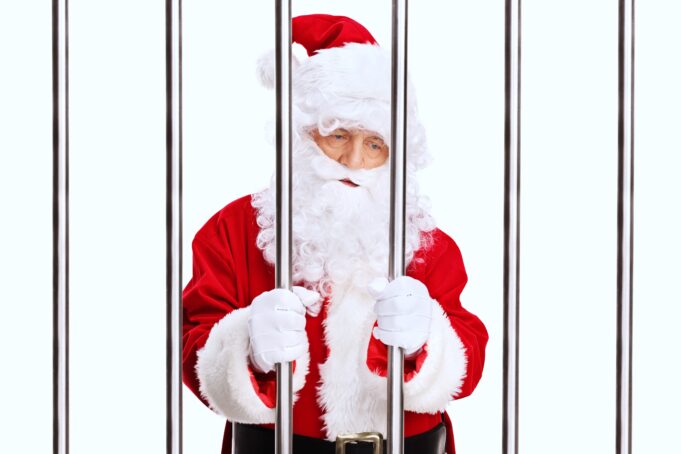
It has been nine years since the Honorable Minister Louis Farrakhan issued the clarion call to withhold our frivolous spending during the holiday season as a strategy in the fight for justice and to direct our dollars to Black-owned businesses. Read about the importance of this ongoing campaign.
Price-gouging merchants that have taken Christ out of Christmas—which is supposed to be about Jesus, joy, love and happiness—saw a “lot quieter” Black Friday this year.
According to Reuters, “Shoppers took to stores across the world on a Black Friday that appeared subdued compared with prior years, looking for discounted electronics, clothing and household goods in the kickoff to the holiday shopping season crucial to big retailers.”
“Brokerage TD Cowen lowered its U.S. holiday spending estimate to two percent to three percent growth, from four percent to five percent, as it forecast flat Black Friday traffic, attributing discounts in October and November removed the excitement and urgency of Black Friday,” continued Reuters.
According to NIQ (Nielsen Global Connect), which provides analytical data about the habits of consumers, the Black population’s influence will continue to grow as their buying power does—which is projected to reach $1.8 trillion by 2024. In 2019, that amount was $1.4 trillion, higher than the gross domestic product of Mexico, according to the Selig Center for Economic Growth.
Price-gouging merchants that have taken Christ out of Christmas—which is supposed to be about Jesus, joy, love and happiness—saw a “lot quieter” Black Friday this year.
According to Reuters, “Shoppers took to stores across the world on a Black Friday that appeared subdued compared with prior years, looking for discounted electronics, clothing and household goods in the kickoff to the holiday shopping season crucial to big retailers.”
“Brokerage TD Cowen lowered its U.S. holiday spending estimate to two percent to three percent growth, from four percent to five percent, as it forecast flat Black Friday traffic, attributing discounts in October and November removed the excitement and urgency of Black Friday,” continued Reuters.
According to NIQ (Nielsen Global Connect), which provides analytical data about the habits of consumers, the Black population’s influence will continue to grow as their buying power does—which is projected to reach $1.8 trillion by 2024. In 2019, that amount was $1.4 trillion, higher than the gross domestic product of Mexico, according to the Selig Center for Economic Growth.
As retailers strategize on how to tap into Black pocketbooks, Black people continue to heed the Honorable Minister Louis Farrakhan’s call for a revolution in thinking and action, to put “Christ back into Christ-mas.”
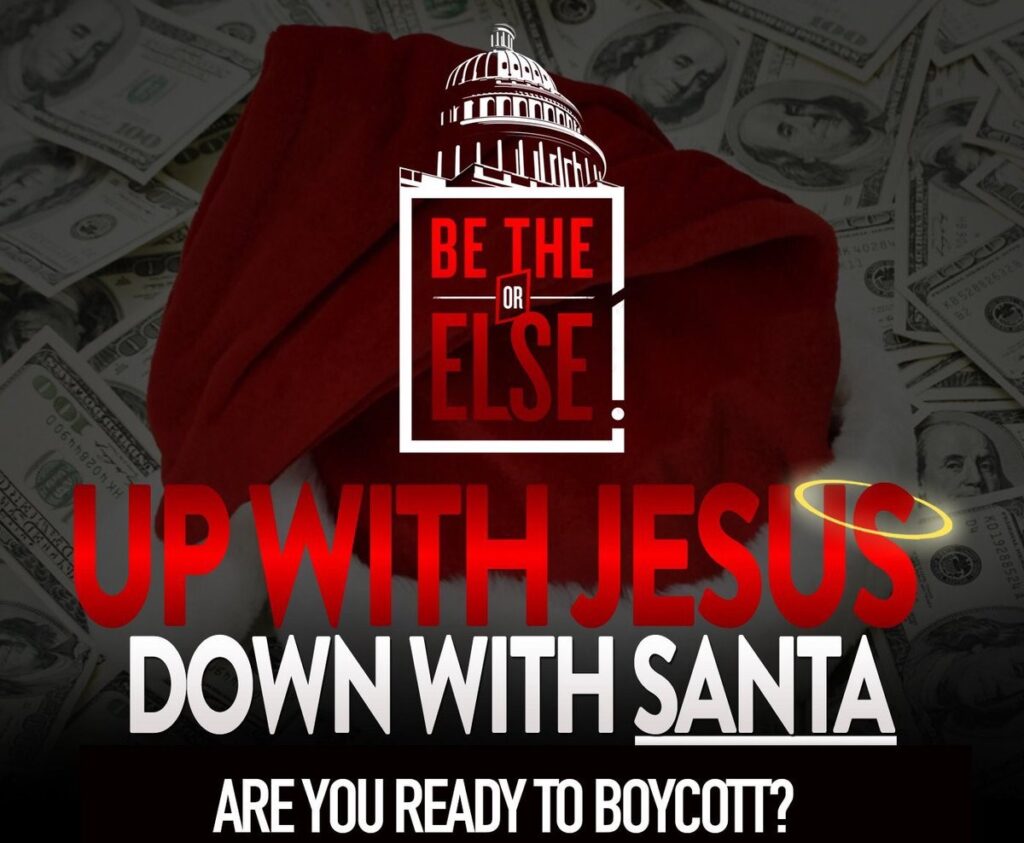
“The word ‘holiday’ is another way of saying ‘holy day’; and a ‘holiday,’ or holy day, is a day that carries great significance with the people who celebrate it,” stated Minister Farrakhan, during his “Death: The Rider of The Pale Horse” lecture at Mosque Maryam on December 17, 1989.
“If we are talking about a simple holiday such as ‘Valentine’s Day,’ or this one’s birthday or that one’s birthday, we might expect some frivolity; or really, maybe some light insanity going on in the celebration. But when you talk about the birthday of the man Jesus:
That should be one of the holiest days; not only in the history of America, but it should be one of the holiest days in the history of all humanity—shouldn’t it?” the Minister questioned.
What does a “Merry Christmas” have to do with Jesus Christ, the Minister further questioned. “And when you turn on your television, you’re bombarded with ‘buy the new car,’ ‘buy the refrigerator,’ ‘buy the diamond,’ buy this and that. But what does that have to do with Jesus Christ? These things are ‘commercial.’ I saw a pale horse whose rider is death and hell followed closely behind.
You have to watch any ‘holy day’ that The Pale Horse sets up because it’s a mockery of The Holy One because The Pale Horse cannot show respect for Divine,” the Minister added.
His teacher, the Most Honorable Elijah Muhammad, encouraged Black people to pool their resources, start businesses and enter into international trade and commerce as a nation within a nation.
During the historic 1995 Million Man March called by Minister Farrakhan, a glimpse of peace reigned on Monday, Oct. 16, 1995. Nearly two million men gathered in Washington, D.C., and not one arrest or crime was reported.
When he encouraged those with money to find a Black business, spend with their own, and keep the money circulating in their neighborhood, Delxino Wilson de Briano was present.
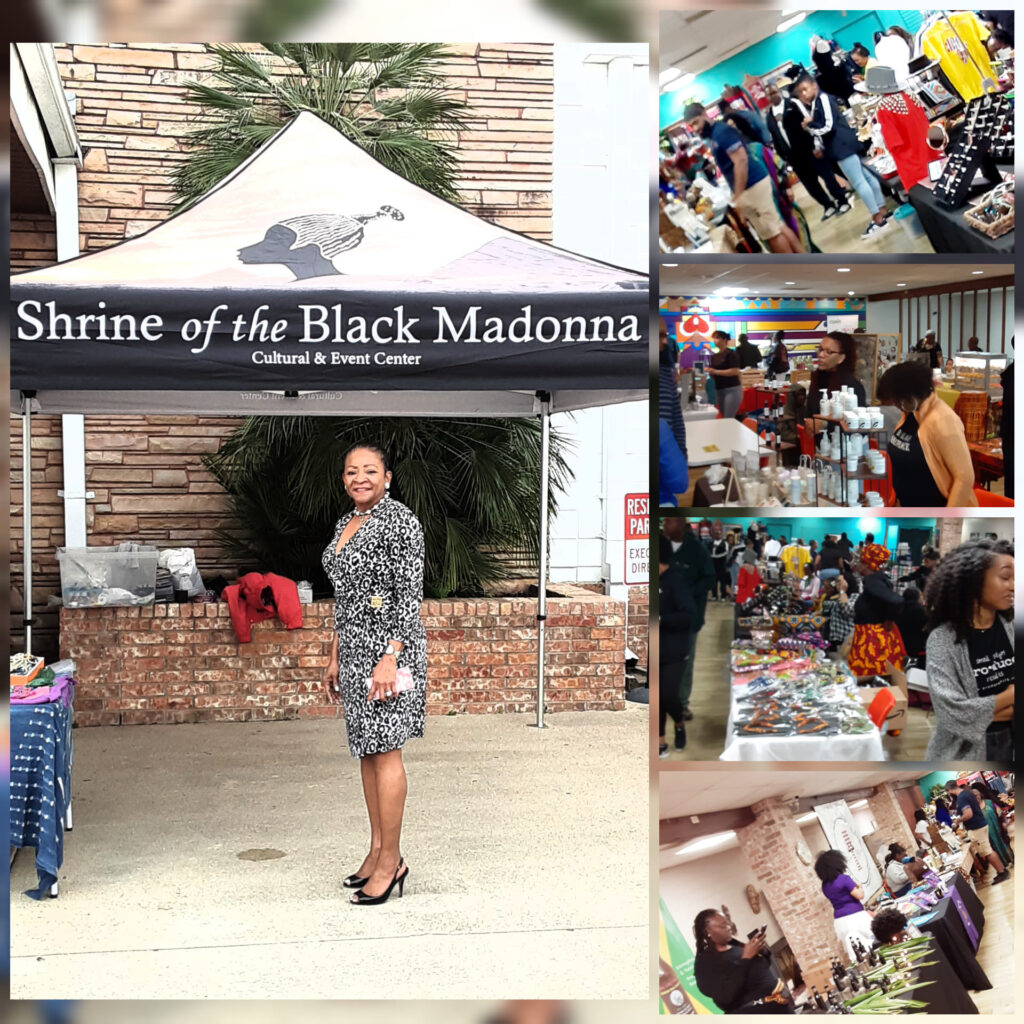
The year before, he had started TAG TEAM Marketing, which operates the powerful Buy Black Movement program. Mr. Wilson de Briano told The Final Call that the Minister’s call for an economic boycott from 2015 on has been right on time.
“Our race currently is giving away almost everything we spend. We generate $1.8 trillion in buying power. That’s not just what we earn, but after we pay our taxes, that’s what’s left in spending money,” Mr. de Briano said. Black people hand over 97 percent of that to other racial groups by the latest statistics issued by Nielsen and other sources, he said.
“When you look at that pattern, it tells a story that’s devastating. Every other race is spending the majority of their money with their own race, and we’re the only ones that spend the vast majority of every dollar we spend with Walmart, Amazon, Target, at the mall with non-Black retailers,” stated Mr. de Briano.
It is devastating because Black people are left with a tiny fraction of the money they work for, and when 50 million Black people in America must split a few percentages of their hard-earned money, that leaves a bleak picture, he argued.
“From my view, poverty, underemployment or lack of businesses, all of that is a direct result of our spending,” continued Mr. de Briano. “Where Minister Farrakhan is so on point is that he provides for us direction. He brings these important points to the forefront of our minds. He makes it relevant and he makes it timely; he brings these issues to us in present time,” he added.
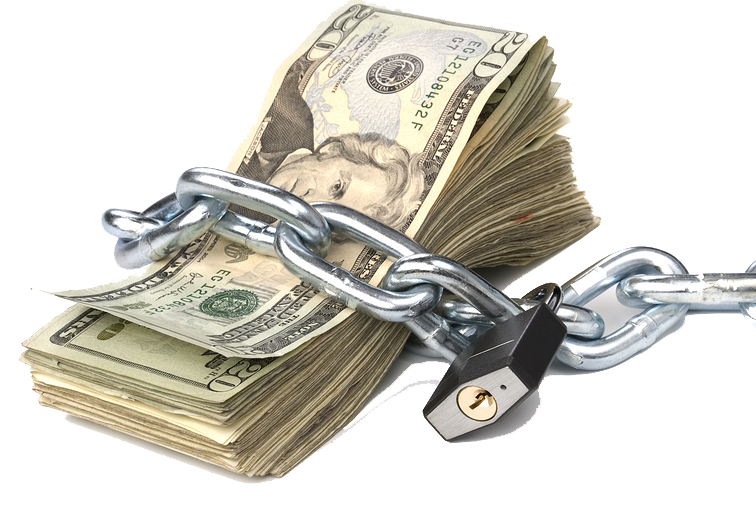
Mr. de Briano said he’s come to realize that buying during the holidays is going to continue, but Blacks need to redirect that money as much as possible to their people, which he and TAG TEAM Marketing do as a Black-owned and operated company that specializes in marketing and distributing the products and services of Black-owned businesses to Black consumers.
“My wife, Debbie, once famously said, ‘It’s not how much money we earn that makes our community rich. It’s where we spend our money that makes our community rich or poor,’” he added.
Throughout Minister Farrakhan’s 2015 nationwide “Justice or Else” tour leading up to the 20th anniversary of the Million Man March, he called for “Up With Jesus, Down With Santa,” a boycott of major department stores and the Black people have responded, noted Abdul Qiyam Muhammad, social media director for the Minister.
He highlighted that the Minister’s research team known as the Nation of Islam Research Group found that at that time over $600 billion is spent in America on Christmas and Thanksgiving holidays, noted Abdul Qiyam Muhammad. The Minister also called for spending and support with Brown communities as well, he continued.
“What we saw as a result of that reality was the spirit of people to participate because during that time there were so many back-to-back killings of us at the hands of the United States police departments across the country,” he continued.
According to national analytics and data shared by the Minister during Saviours’ Day 2016, major department stores and outlets, including Apple, Best Buy, Macy’s and others, took a major hit based upon the command that God delivered through the Minister.
At least 20 major retailers have said they’re closing U.S. stores in 2023, amounting to 2,847 locations, according to Business Insider.
“It’s not exactly the retail apocalypse of prior years, but it’s a shake-up nonetheless,” stated Dominick Reuter in an online article dated October 18. For example, more than 9,300 stores were closing in 2019, including Sears, Kmart, Party City, Walgreens, and Barneys. Payless planned then to close all of its 2,500 stores in what could be the largest retail liquidation in history, reported Business Insider.
Recent Capitol One Shopping Research indicates that the United States is home to an estimated 1,150 malls and some sources project that by 2032, there may be as few as 150 malls still in operation.
For example, it reported:By some estimates, there were as few as 700 large shopping malls left in the U.S. in 2022.
Malls had an 8.7 percent vacancy rate at the end of 2022.
An average of 1,170 shopping malls closed every year between 2017 and 2022.
The average vacant mall sells at 43 percent below its acquisition price.
“Many major retail companies have closed tens of thousands of their locations around the country and naturally, they won’t credit God, through His Messiah, the Honorable Minister Louis Farrakhan, for calling forth this, and they’re reaping the pain of it. For those of us who have witnessed and know the call and where it came from, we’re still seeing the residual effects, coupled with all of the other things that the God caused, including the weather,” stated Abdul Qiyam Muhammad.
“It was a powerful calling and it united the community,” stated Rev. Nailah Nelson of the Shrine of the Black Madonna Cultural and Events Center (the Shrine) in Houston. Together, Black people can win in any situation, and determine who they are and what they do with their money, she told The Final Call.
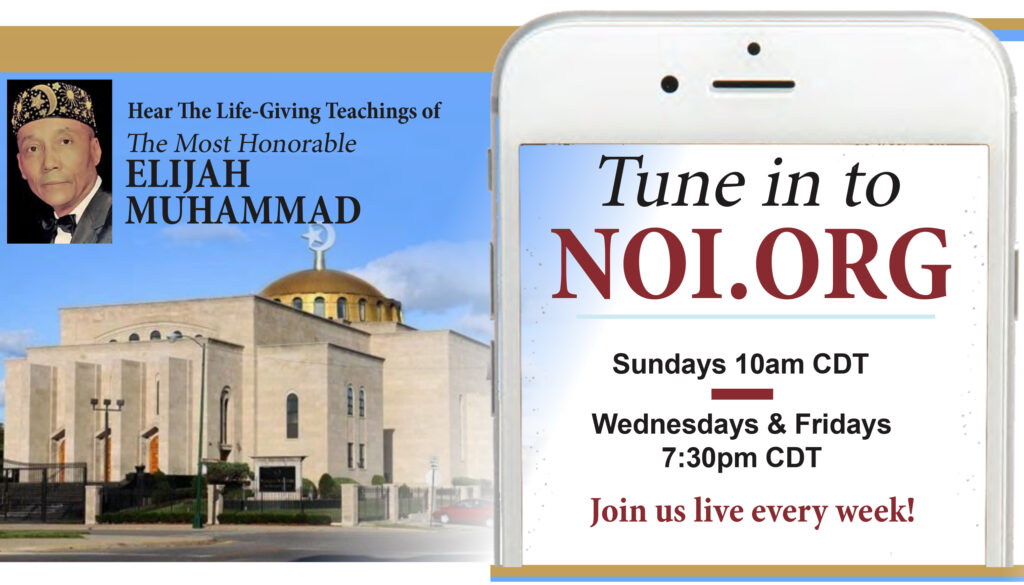
The Shrine started its original “Buy Black” marketplace when others were protesting police brutality, the killing of Michael Brown, Jr. in Ferguson, Mo., and all of the deaths that occurred at that time, following the Justice Or Else! movement with Minister Farrakhan. They collaborated with other organizations, including Muhammad Mosque No. 45, the Southwest Regional headquarters of the Nation of Islam, and SHAPE Community Center, to start a movement of withholding Black dollars.
The mission of every First Saturday Marketplace was to not only protest and stop all spending, from gas to groceries, with Black dollars, but to give opportunity for local, small Black entrepreneurs a place to showcase their products, explained Rev. Nelson.
“It’s not about spending money and we’ve got it all wrong. It’s about sharing and giving, being generous, the act of kindness. It’s not about capitalism,” she stated.
She thinks that during the holiday season, it’s very important to rethink what the holiday really means. As a Christian, she said, if people are following those footsteps, their responsibility is to bond closely with friends, family, neighbors and community, and make a positive change in each other’s life.
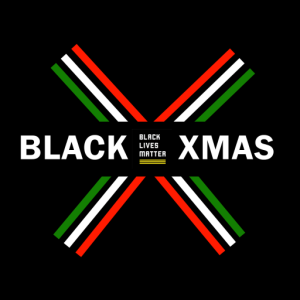
“I think it’s very important for us to remember that we are a communal people and as we are in this season of Christmas, let us be more like Jesus and spread the love. That is more important and it is something that money cannot buy. However, if you go to buy gifts, by all means, buy Black! Support the Black businesses because in order for them to survive, they need our support,” she added.
Black Lives Matter, (now Black Lives Matter Grassroots) in Los Angeles initiated its annual campaign called Black Xmas in 2015 in collaboration with the Nation of Islam.
“The Minister, in that call, was actually one of the inspirations for one of the major campaigns of Black Lives Matter Grassroots,” stated Dr. Melina Abdullah, co-founder of Black Lives Matter Los Angeles and professor of Pan-African Studies at California State University Los Angeles.
Black Lives Matter made the connection between the Minister’s call and White supremacist capitalism and police violence, Dr. Abdullah explained. That focus came after the 2014 fatal shooting of 22-year-old John Crawford by police in a Beaver Creek, Ohio, Walmart, after an employee called the police when he was simply looking at merchandise, she noted.
“The Minister was absolutely right. We have to be intentional with our economic resources. That’s one of the ways that we exercise power and begin to build ourselves as a community,” Dr. Abdullah told The Final Call.
Since then, during Black XMAS (from Black Friday to January 1) is when Black Lives Matter Grassroots works to “build Black” instead of being whipped into a consumer frenzy. They strategize on how to invest their dollars in Black-led organizations that uplift Black people, said Dr. Abdullah.
“We also say that this is a period where we should all be moving our money out of corporate banks that finance things like the horror, the genocide, that’s happening in Palestine and move our money out of those banks and into Black-owned banks like One United.
So Black XMAS is a period where we say ‘Build Black, Buy Black, Bank Black,’ and we are indebted to the Minister for really prompting us to move forward in that way and we’ve been moving forward since 2015, since that initial call.”
No comments:
Post a Comment